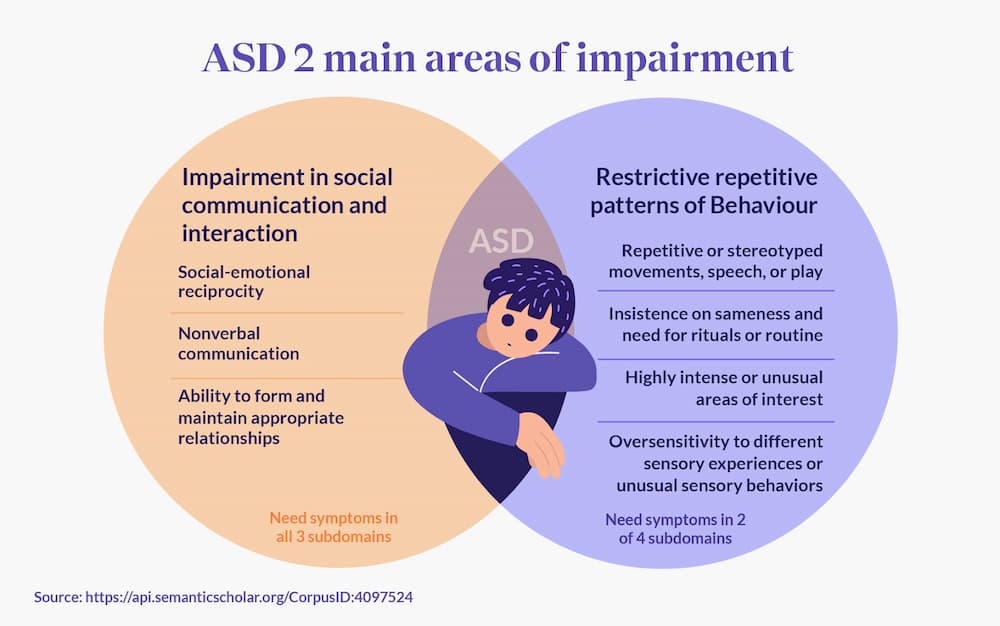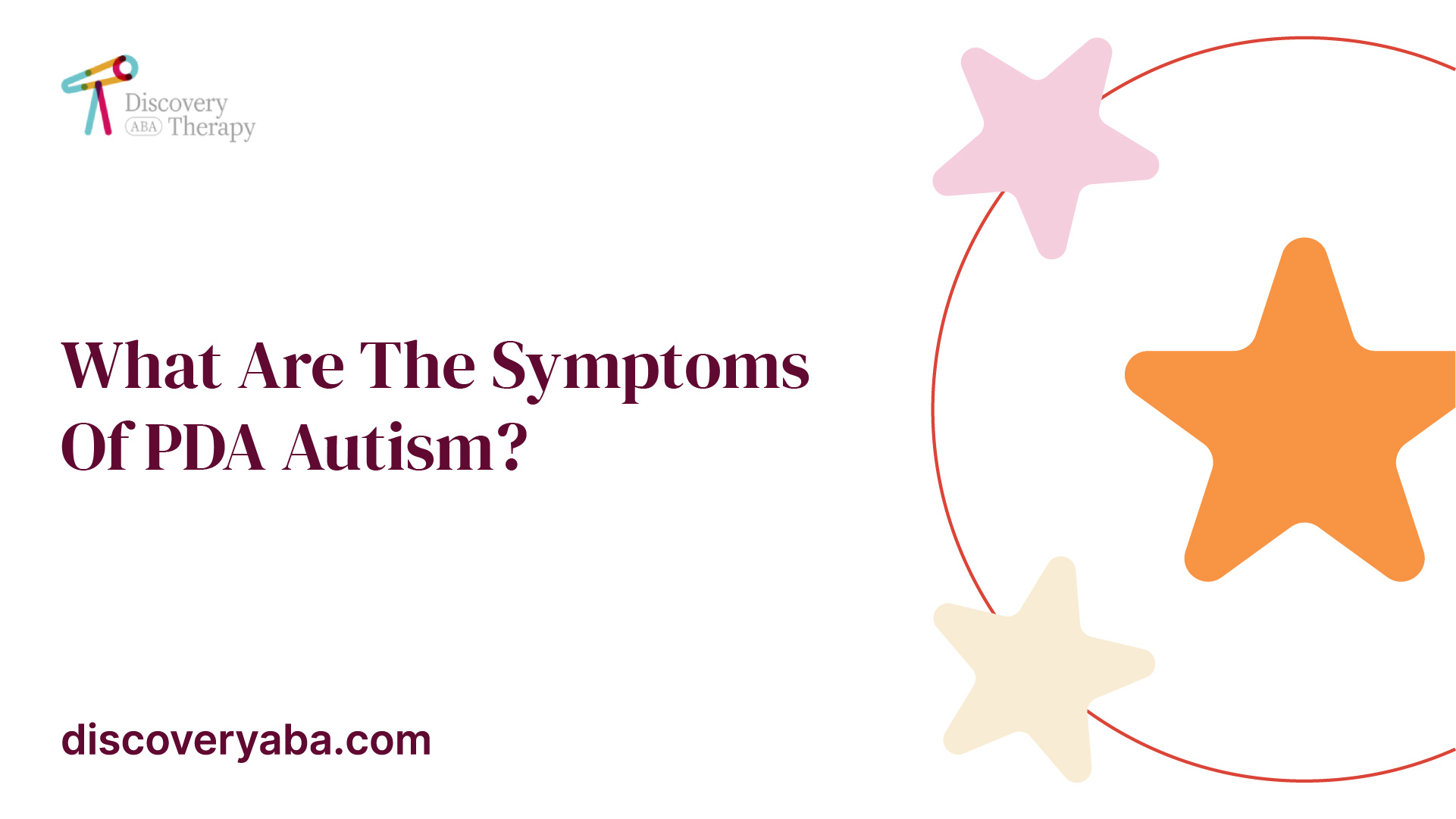Secret Indicators and Signs And Symptoms to Identify in Individuals With Behavioral Autism
When you experience somebody with behavioral autism, recognizing essential symptoms and signs is vital. You may observe obstacles in social communications and communication, as well as a solid demand for regimens. Furthermore, sensory level of sensitivities can lead to frustrating experiences. Recognizing these attributes can boost your support and interventions, yet there's even more to discover about how these actions show up in daily situations. Let's discover what these indications really resemble.
Challenges in Social Communications
When you engage with someone on the autism spectrum, you could see they battle with social hints and communication. These challenges can make social communications feel frustrating for them. You may see them staying clear of eye get in touch with or standing too close or as well away throughout conversations, which can produce misconceptions. They might not pick up on body movement or faces, making it harder for them to gauge exactly how others are really feeling.
When they do involve, they could chat about their passions in fantastic detail without observing if you're interested. Recognizing these obstacles can assist you come close to communications with compassion and perseverance, fostering a more comfortable environment for both of you.
Difficulty With Verbal and Non-Verbal Interaction

Identifying these indicators is necessary, as it helps you much better assistance and involve with people on the autism range. By understanding their interaction difficulties, you can foster much more purposeful links and give a much more encouraging environment.
Repetitive Habits and Routines
Communication challenges typically go along with other indicators of autism, such as repetitive habits and a solid preference for routines. You might observe that individuals with autism frequently take part in certain, repeated activities, like hand-flapping, rocking, or duplicating phrases. These actions can supply comfort and a sense of control in a commonly frustrating globe.
When they adhere to an organized timetable,Routines are just as vital; several individuals prosper. You may find that adjustments to these routines can bring about significant distress. If they have a day-to-day routine of eating breakfast at a particular time or complying with a specific route to college, any kind of disturbance can cause anxiety.
Identifying these patterns assists you understand their behavior and give support. By accommodating their need for routine and permitting repeated activities, you can develop a more comfortable setting that relieves their challenges.
Sensory Level Of Sensitivities

Usual Sensory Triggers
Sensory sensitivities can considerably impact day-to-day life for people with autism, as particular stimulations usually trigger overwhelming reactions. Common sensory triggers include loud sounds, intense lights, and strong smells. Understanding these triggers can aid you handle your setting better.
Behavior Responses Described
Comprehending your behavior responses to sensory sensitivities is essential, as they commonly expose how you interact with the globe. You might additionally see post discover yourself looking for details sensory experiences, like deep stress or quiet settings, to assist ground yourself. Acknowledging these patterns assists you understand your demands better and can lead just how you interact them to others.
Coping Methods Summary
Identifying your sensory level of sensitivities is simply the initial step; now it's time to check out coping approaches that can help you take care of those experiences properly. Start by producing a sensory toolkit customized to your requirements. This might include noise-canceling headphones, fidget toys, or relaxing scents. Establishing an organized routine can also supply predictability, decreasing stress and anxiety around sensory overload. Take breaks in a peaceful space to collect yourself when you really feel overwhelmed. Practicing mindfulness techniques like deep breathing can assist ground you in the moment. Furthermore, connect your demands with those around you; having supportive family and friends can make a massive distinction. Keep in mind, discovering what functions best for you might require time, so be open and patient to attempting brand-new techniques.
Limited Interests and Focus
While numerous individuals establish a large range of rate of interests, those with autism usually show restricted passions and an intense emphasis on particular topics. You might observe that somebody with autism can invest hours delving right into their preferred subject, whether it's a certain sort of train, a details motion picture, or a scientific principle. This intense focus isn't simply a pastime; it can become a main part of their identity and social communications.
You might find that discussions focus on these interests, and they might have a hard time to take part in wider topics. For them, these focused interests give comfort and a feeling of mastery. While it is necessary to urge expedition of brand-new subjects, valuing their passions is similarly necessary. By comprehending and acknowledging these restricted passions, you can foster an encouraging environment where they really feel valued and recognized, enabling even more purposeful links and communications.
Emotional Regulation Difficulties
People with autism frequently deal with difficulties in psychological regulation, which can be influenced by their intense emphasis on details interests. You might notice that when a person is deeply taken part in a recommended task, they can experience solid emotions, whether enjoyment or disappointment. When things don't go as intended., this strength often makes it difficult for them to shift equipments or manage their sensations - Autism Spectrum Therapies.

Variability in Developing Milestones
When it concerns developing milestones, you'll discover that people with autism usually show a large array of irregularity. Some may strike landmarks on time, while others may drag or development at a various rate. You could see a youngster stand out in language skills however struggle with social interactions. This inconsistency can be complex, as standard criteria don't always apply.
It's essential to acknowledge that each individual's trip is distinct. Observing these patterns can assist you recognize their strengths and needs better.
Regularly Asked Inquiries
How Is Autism Identified in Kid and Adults?
To detect autism in adults and kids, professionals examine habits, communication skills, and social communications. If an individual satisfies the requirements for autism range problem., they frequently make use of standard tests, interviews, and monitorings to determine.
Exist Different Kinds of Autism Spectrum Disorders?
Yes, there are different kinds of autism spectrum disorders, consisting of Asperger's syndrome and pervasive developmental disorder-not otherwise defined. Each kind differs in seriousness and characteristics, so recognizing these differences can aid you far better assistance individuals with autism.
What Therapies Work for People With Autism?
When taking into consideration reliable therapies for people with autism, you'll locate options like Applied Habits Evaluation, speech treatment, and work-related treatment. her response Each method can help improve interaction, social abilities, and day-to-day functioning customized to private requirements.
Can Individuals With Autism Lead Independent Lives?
Yes, people with autism can lead independent lives. With the right support, abilities training, and sources, you can aid them develop self-sufficiency, take care of everyday jobs, and flourish in various atmospheres, promoting their self-reliance.
How Can Households Support Enjoyed Ones With Autism?
You can sustain your enjoyed ones with autism by producing a structured environment, encouraging their interests, practicing perseverance, promoting communication, and advertising social abilities. Commemorate their accomplishments, despite how little, and construct an encouraging community.
Although many people on the autism spectrum can comprehend and use language, they usually encounter substantial challenges with both spoken and non-verbal interaction. Identifying these signs is essential, as it aids you much better support and engage with individuals on the autism range. You might observe that people with autism usually engage in specific, repeated actions, like hand-flapping, rocking, or repeating expressions.Sensory sensitivities can considerably influence daily life for individuals with autism, as particular stimulations commonly trigger overwhelming reactions.When it comes to developmental landmarks, you'll observe that people with autism commonly show a large range of irregularity.